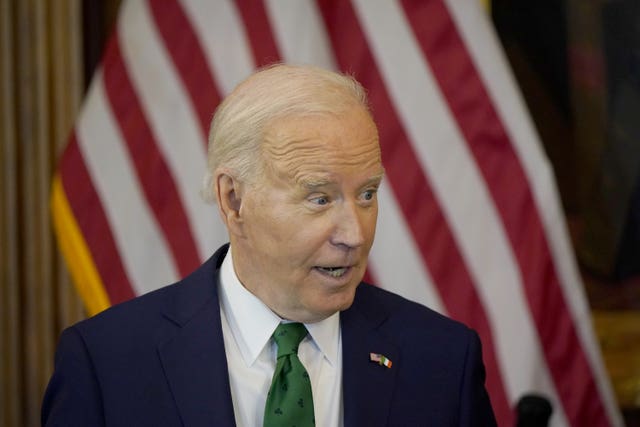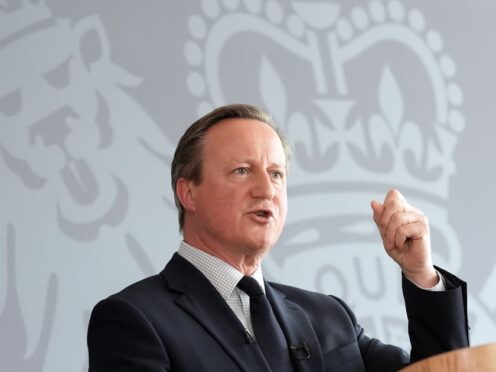Foreign Secretary Lord Cameron said the UK could not support a major Israeli offensive on Rafah without a plan to protect civilian lives.
US President Joe Biden has warned Israel’s Benjamin Netanyahu that the supply of weapons from Washington could be halted if the heavily-populated southern Gaza city was attacked.
Lord Cameron said the UK was in a different situation because the Government did not supply weapons directly, but said arms export licences would continue to be measured against the risk of international humanitarian law being broken.

Answering questions following a speech in London, he said: “There’s a very fundamental difference between the US situation and the UK situation.
“The US is a massive state supplier of weapons to Israel. We do not have a UK Government supply of weapons to Israel, we have a number of licences, and I think our defence exports to Israel are responsible for significantly less than 1% of their total. That is a big difference.
“On Rafah, we are clear that we would not support some major operation in Rafah unless there was a very clear plan for how to protect people and save lives, and all the rest of it.
“We have not seen that plan, so in the circumstances we will not support a major operation in Rafah.”
He added: “When it comes to our own arms sales we have a rigorous process that the Foreign Secretary is involved in, the Trade Secretary too, in making sure – crucially – that when we consider export licences, that we must make sure they’re not going to contribute to a serious violation of international humanitarian law.
“That is the key test and that’s the thing that we apply.”
